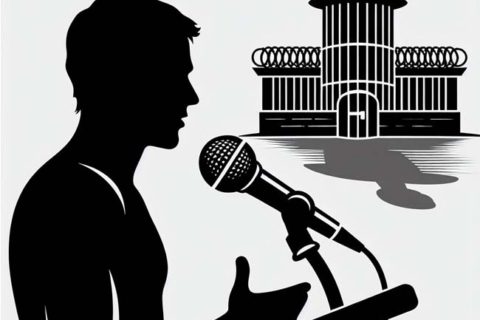Economy requires businesses to produce goods and services purchased by the consumers, other businesses, and governments to progress. When production slows, demand for goods and services reduces, credit tightens and the economy enters a recession. People will experience a lower standard of living due to employment uncertainty and investment losses. Recessions which last more than a few months make long-lasting hardships for average people who affect all aspects of their lives.
How Does a Recession Affect the Average Person?
People losing their jobs is one of the first things to happen during a recession. This was the case during the big recession and during the short-lived pandemic-era recession, where tens of millions of people were laid off. Discovering new employment during a recession is not easy, thus people are frequently stuck in unemployment for prolonged periods, during which time they are going to start drawing down their savings and paying the bills becomes harder.

Apparently, a recession will not affect everyone in the same way. Those who were already in a vulnerable situation, employed in low-paid jobs which prevent them from building enough savings to fall back on in hard times. Probably be forced into debt by a recession. In turn, it will affect their ability to access key services like health care, with many people losing their health insurance with their job.
Leisure, retail, hospitality and the food-service industry are among the sectors which usually bear the brunt of a recession, frequently being forced to cut the workers. And, in the worst-case scenario, going out of business entirely. Even people who are in a better savings situation might lose something during a recession. Those people who have investments in bonds, stocks, real estate, or other assets might lose their money. Those people who are paying off a mortgage on their homes probably fall behind with payments, while those people who have not purchased a house before probably be forced to wait a little longer to be able to afford one.
Lisa Shalett, who is a chief investment officer, at Morgan Stanley said in a June report that some economic factors show a less severe recession this time around, if one occurs. Lisa Shalett cited factors such as the strong labor market and strong company and household balance sheets. Unfortunately, financial instability caused by a recession frequently impacts those people struggling in ways which long outlast the eventual economic downturn.
Individuals and families who struggling with unemployment, financial strain and lack of housing also experience sleeping problems, poor health, and mental health problems such as depression as a direct consequence of the pressure these situations put them under, as the PRB (Population Reference Bureau) observed in those most affected by the 2007-2009 big recession.
How Does a Recession Affect Bank Accounts?
Interest rates are going to fluctuate based on what needs to be done by the Federal Reserve to move the economy accordingly. As a result of those movements, then you are going to see many changes in interest rates provided by the banks. Also, banks accept that even in the best of times, there will be people who default on their payments. During a recession, we may view an increase in foreclosures. Banks are going to be less likely to loan money to the borrowers looking for a mortgage or a personal loan. It may not be as simple to get a mortgage during a recession as it was before because banks are going to be more stringent with the approval process.
The good news is that if you keep your own money in a savings account with your bank, then you may see a slight increase in your return because the Fed frequently increases interest rates to combat high inflation. When The Fed increases rates, usually banks follow suit and raise theirs to attract more customers that makes more cash flow. But there is no telling how long a recession was able to last and what type of interest rate changes will occur to stimulate the economy in the meantime.
As long as your bank is federally insured, you are able to sleep soundly at night knowing that your money is safe in your bank account. FDIC insurance will protect your savings for up to $250,000 in individual bank accounts, thus you do not have to worry about a recession wiping out your bank account.
How Does a Recession Affect Credit Cards?
By the way, how does a recession affect credit cards? A recession will impact credit cards in some different ways. Credit card interest rates are high compared to other kinds of debt, and can be stressful for lots of people during good times. During a recession, people probably lose their jobs or experience other financial setbacks which lead them to rely on credit cards to survive. In a worst-case scenario, people are unable to make their minimum payments on their own credit cards, and they are going to declare bankruptcy.
Other people who carry a balance on their credit card probably see an increase in their monthly minimum payment because interest rates increase. If you are one of those people, it means that your debt payment plan was able to be altered through no fault of your own. You were able to discover yourself with higher debt payments and less income coming in.
Because credit cards are unsecured debt, several people are going to default on their credit cards during times of uncertainty. Credit card firms respond to this by increasing interest rates to limit losses and also increase revenue to cover these expenses. Those changes will protect the profits of the credit card firms. However, they end up hurting anyone who has to carry a balance. It is highly recommended that you recession-proof your finances by focusing on paying down credit card debt and building an emergency fund so that you are prepared for whatever happens with the economy. You will not be blindsided by job loss or increases in your debt payments.

A bookworm and researcher especially related to law and citizenship education. I spend time every day in front of the internet and the campus library.




